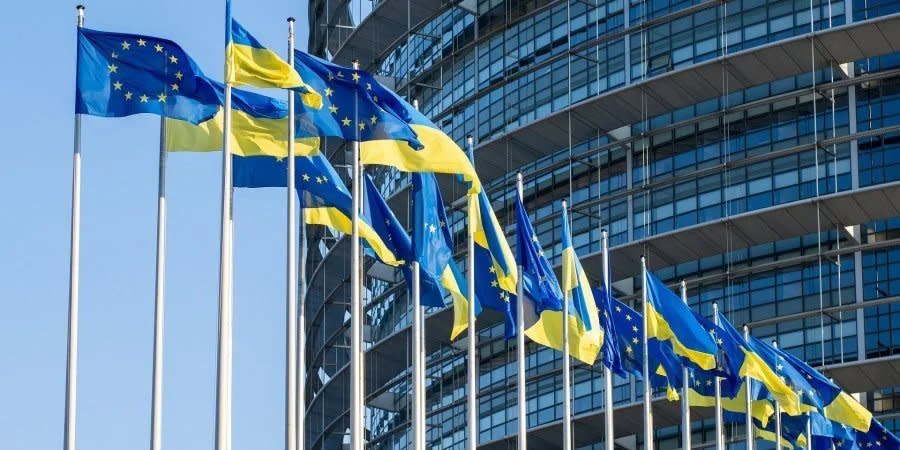EU summit starts in Brussels, Ukraine likely to be granted EU candidate status

The agenda of the summit, which will be held on June 23-24 in the Belgian capital Brussels, will include consideration of applications from Ukraine, Moldova and Georgia to be granted the status of EU member candidates, as well as the issues of the war in Ukraine and the Russian blockade of the export of grain from Ukrainian ports.
The European Commission, led by its president, Ursula von der Leyen, on June 17 recommended granting such a status to Ukraine and Moldova, while saying the situation and state of reforms in Georgia ruled it out of gaining candidate status for now.
However, it is up to the leaders of the 27 EU countries to make the ultimate decision.
Read also: Ukraine is a step away from EU candidate status: what's next, and how long until full membership?
A week ago, on June 16, the leaders of France, Germany and Italy during their visit to Kyiv endorsed granting candidate status to Ukraine. In the following days, even those EU countries which were earlier more skeptical of such an idea (the Netherlands, Denmark) voiced readiness to support Ukraine's aspirations to become an EU membership candidate.
French Foreign Ministry spokesman Clement Beaune said on June 21 that a “total consensus” had been reached among EU countries on consideration of Ukraine’s application.
Prominent news agencies, including Reuters and Bloomberg, a few days before the summit in Brussels wrote, citing their sources, that the European Union was this time acting as a united front, and that all 27 leaders of countries are ready to grant Ukraine EU candidate status.
Such a decision should be a "symbolic, but morale-boosting" gesture in support of Kyiv, Reuters wrote.
Read also: Ukraine faces tough week as Russia reacts to Kyiv’s closer EU integration, warns Zelensky
Earlier, Luxembourg Foreign Minister Jean Asselborn told reporters, “we are working towards the point where we tell (Russian President Vladimir) Putin that Ukraine belongs to Europe, that we will also defend the values that Ukraine defends.”
The status of a candidate member of the EU will be just another, albeit an extremely important step for Ukraine on its way to the European Union. Ukraine will likely need to go through years of reforms to fully meet Brussels' criteria.
Based on the experience of current EU members, it usually takes at least 10 years from application to accession.
Thus, Poland, which applied in 1994, became a full member of the EU only in 2004. In the case of Bulgaria and Romania, the path from application to accession lasted 12 years, while it took Cyprus a whole 14 years to join. The Baltic countries Lithuania, Latvia and Estonia took nine years to join the union.
However, due to the invasion of the Russian Federation, Ukraine was fast-tracked from the stage of application for EU membership to a recommendation by the European Commission to grant Kyiv EU candidate status.
Read also: EU candidate status for Ukraine ‘draws victory nearer’ — Zelensky
A few days after the invasion, on Feb. 28, Ukrainian President Volodymyr Zelensky signed Ukraine’s application for membership of the European Union, which was sent to Brussels on the same day.
The European Commission on April 8 gave Ukraine a questionnaire on obtaining the status of an EU candidate — a necessary formality for this step. Ten days later, Kyiv returned the completed document, and on June 17, after accelerated consideration of the Ukrainian application, the European Commission recommended granting Ukraine the status of an EU member candidate.
There are currently five candidate states for EU membership:
Read also: Ukraine and Moldova recommended for candidate status for EU membership, Georgia denied
Albania (candidate status in 2014, start of membership negotiations in 2020),
North Macedonia (candidate status in 2005, start of negotiations in 2020),
Montenegro (candidate status in 2010, start of negotiations in 2012),
Serbia (candidate status in 2012, start of negotiations in 2014),
Turkey (candidate status in 1999, negotiations started in 2005, which were frozen in the light of the human rights situation in the country).

